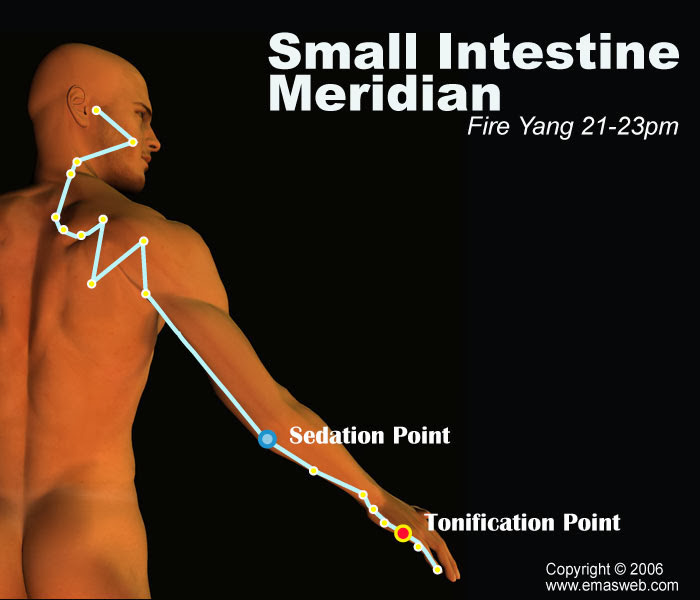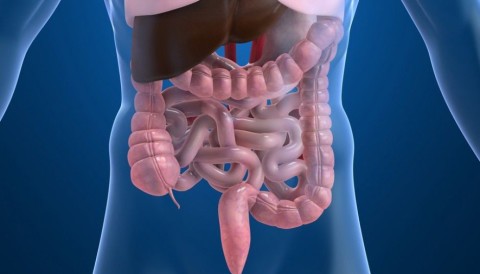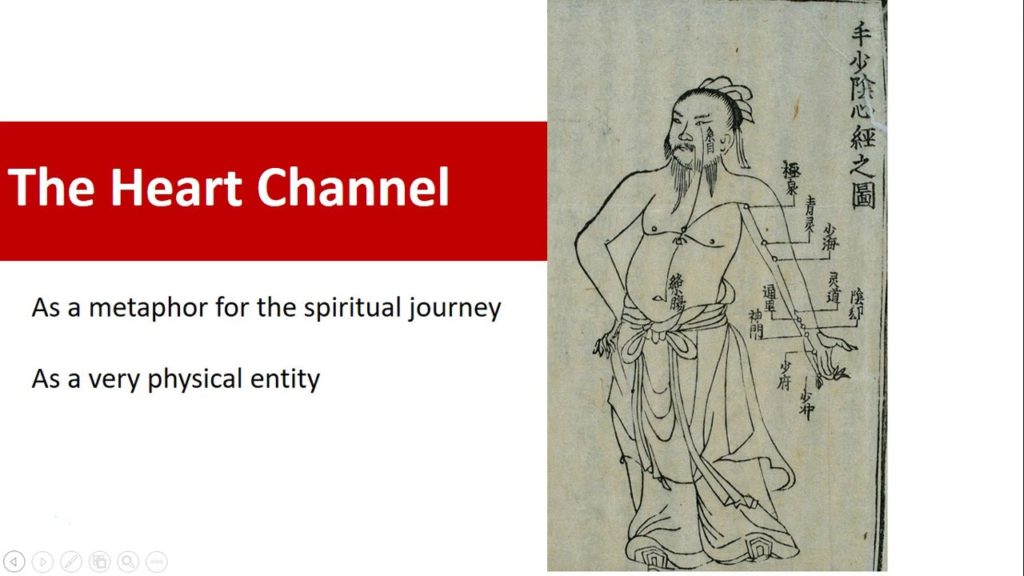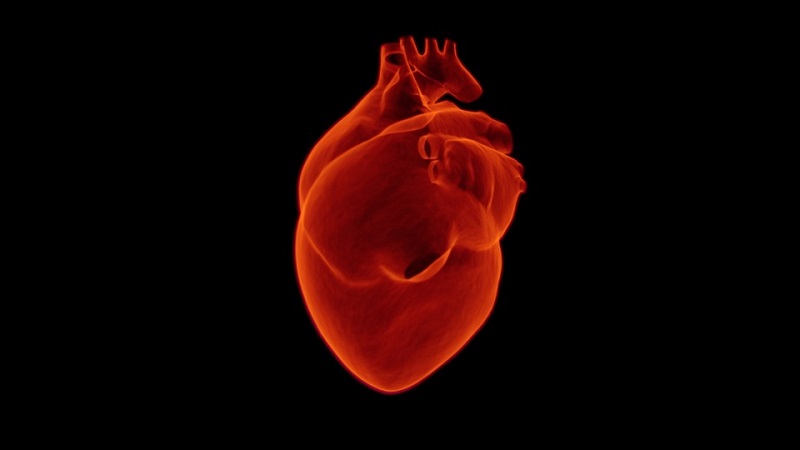
Back on the Spirit Path: Acupuncture for Healing Trauma & Changing Obsessive, Addictive Thinking.
Acupuncture is most popularly used to treat physical ailments, especially pain. However in my acupuncture practice, I treat a multitude of conditions including personality disorders and mental-emotional issues.
A common issue I work with are various forms of mental obsession and disempowered thought patterns. One such relates to a state of insecurity and neediness for constant feedback, clarification and validation. In Chinese psychology, this relates to the organ and acupuncture channel system of the Small Intestine.
Many conditions related to the energetics of the Small Intestine also have relationship to the Heart, as these two organs (and channels) share an intimate relationship. Chinese medicine sees each organ system sharing a strong relationship to particular sensory organs as well. The Heart is said to “open to” and express itself through the tongue. For the Heart to be healthy and free, it needs to express itself: it’s mental and emotional experiences via articulation and speech. When the Heart has been traumatized it often manifests a sense of betrayal or “heart pain” that can lead to “muteness” usually in the form of being unable or unwilling to talk about the trauma or issue.
The Small Intestine when traumatized doesn’t manifest muteness, but the need to constantly talk about an issue, always needing more and more clarification, explanation and validation. This can turn into obsession and become overbearing for others hampering social interaction. This can progress into a frequent state of uncertainty with inability to trust one’s own instincts in social relations. One often finds this within relationships that are abusive. When there is frequent withholding of love, attention or information a person begins to lose trust in themselves and their own instincts. When the person is treated badly, criticized harshly and lied to or manipulated it can cause a person to feel insecure, uncertain as to what is true, as if they need others to validate their experience in order to feel secure.
It’s interesting to note that the essential oils used to treat the Small Intestine related to these states are onion and cumin, two substances that are very spicy and acrid, often used to treat parasites. Just as parasitic entities can afflict the digestive system causing dysbiosis, abusive relationships can damage a person’s ability to process thought and emotion, especially in relation to the social environment and interaction with others.
The Small Intestine is not only related closely with the Heart, but also with the digestive system, especially the Stomach. In Chinese medicine, the digestive system manages physical assimilation and transformation of food and drink, but also that of thoughts, emotions and life experience. This includes constitutional, essential aspects such as instinct relating to what resonates with our personality and nature. Each of us instinctually knows what is right for us: what is nourishing and what is toxic, or just inessential. It also includes the ability to take social interactions, relations and experience and transform it into wisdom and deeper understanding. There is also the aspect related to the “divine mandate” or spiritual journey particular to each of us. The magic of the heart is that it acts like as spiritual magnet, drawing to each of experiences that will help us fulfill our spiritual mission in life.
A good functioning Heart system attracts that which is appropriate, in line with our spiritual mission. When the Heart has been traumatized, we start to attract situations and people that mimic or recreate an unresolved traumatic event.
The Small Intestine mental pattern resembles that of a traumatized Heart which disrupts a person’s spiritual magnet. It is debatable whether anything that happens to us in our lives is inappropriate for us. Everything is a lesson, a teaching moment. Yet, these events should have a beginning and an end, with graduation from the lesson. When lessons repeat frequently or constantly, this shows a disruption to the learning process.
A need to repeat situations over and over shows the full digestive process where assimilation, transformation and elimination is not occurring. This relates to a dysfunction of the Large Intestine acupuncture channel: a need for repetition, which also tends to manifest through symptoms of the jaw and teeth. The two intestinal channels relate to assimilation and elimination of physical as well as mental-emotional material. When they are in a state of dysfunction, often due to trauma, they show repetitive patterns marked by obsessiveness and uncertainty. The Large Intestine of a more personal nature, while the Small Intestine is more socially focused.
A similar repetitive situation is occurring when a person lacks the intuition to sense a person, their intentions and meaning from words and actions. As the Heart and Small Intestine become strong, a person knows. When this ability is highly developed, it allows a person to be somewhat psychic. Yet everyone naturally possesses instinct and intuition. We know what a person means through our ability to sense them, follow social cues, and identity through how and what we are feeling in reaction to what the other person is doing.
When a person is led to distrust their own intuition, or gets caught up in a traumatic loop, the Small Intestine must be treated. The need for repetition of thought and behavior indicates the Large Intestine also needs attention. The specific acupuncture points to break through trauma creating insecurity obsession and repetition are SI-7 “the Upright Branch” and LI-6 “Veering Passage,” both located on the arm. Both of these points treat stasis of the blood, which Chinese medicine says affects the mind and emotions creating static states.
The Small Intestine’s acupuncture channel deals with digestive imbalance as well as blood stasis.
Trauma is related to blood stasis, while obsessive thinking to digestive imbalance. The Small Intestine channel also deals with what is known as the “healing crisis,” which is an exuberant, expressive state where the body is trying to release a latent issue, usually through a dramatic detox.
The success or failure of a healing crisis depends on the strength of the body and its capacity to bring an unresolved issue to completion and full cathartic resolution. This is arguably the unconscious intent when a person continually recreates and revisits a traumatic or difficult experience. The reason these experiences don’t lead to catharsis is due to an underlying weakness, usually in the Kidneys, Liver, Lungs or Heart that don’t allow the person to fully let go and move on.
Another acupuncture point along the Small Intestine channel, located on the upper arm addresses stubborn conditions that have become unconscious and difficult to change. SI-9 “Upright Shoulder” shares the word “upright” in its name with the prior mentioned point SI-7 “Upright Branch.” The term “upright” refers to a type of immune energy in the body that knows what is right for us, and what is toxic. The acupuncture point next to SI-9 deals with blood stasis states that can confuse and fixate a person, causing them to attract and be attracted to that which is traumatic, confusing the body’s upright energy.
The basic measure of mental-emotional stability in the body according to Chinese medicine is the Heart-Kidney communication which can be measured through the radial pulse, one of the main diagnostic tools used by an acupuncturist. Trauma, or something that shocks or frightens a person will disrupt the communication between the Heart and Kidney. When the upright energy of the body is strong and stable, a person will not wish to engage in behavior or with people who disturb their Heart-Kidney connection. But trauma will draw a person to such activities and people, frequently disrupting the basic connection for mental-emotional stability in the body.
A very powerful acupuncture point that helps a person to strengthen themselves so they can move on and stop reopening old wounds and trauma is BL-43 “Gao Huang Shu,” located on the upper back. The term “Gao Huang” relates to the process for absorption in the digestive system. It relates both to the ability to absorb nutrients, but also to the membranes that protect against leakage and infiltration of toxic elements. BL-43 is a point that strengths the body and opens the Heart Protector (one of the basic connective and protective systems in the body to connect the Heart and Kidneys).
Adding the point PC-8 “Palace of Toil” to BL-43 allows insight and awareness into the tendency to put effort into impossible endeavors: trying to make things work that are not meant to be bothered with: the wisdom that some things are meant to be transformed, while others are best to just let go.
There’s a distinction between the Heart Protector (Pericardium) and true Heart in Chinese medicine. The Pericardium holds onto experience, often traumatic or disappointing, influencing our minds, thoughts and even personalities. In health it is protective and connective. Yet when imbalanced it can become oppressive and restrictive.
The Pericardium causes us to love and accept the world in a conditional way, due to our experiences of disappointment. We become less “open” and receptive. This is an attempt towards self preservation and safety, yet it can become suffocating and self-limiting. The Pericardium, like the Intestinal channels maintains blood static states that keep us from moving on in life.
The Heart is the pure expression of the spirit, full of curiosity, animation and the potential for unconditional love and acceptance. Treatment of the Heart is aimed at bringing a person back to that original, childlike state of innocence and openness. The acupuncture point HT-7 “Spirit Gate” is the expression of this state. It opens us to our divine spirit and its path in life.
The Small Intestine is a channel focused on learning: the feedback exchange process that occurs between ourselves and the world. The ultimate goal is Heart-centered openness based in wisdom, allowing us to be attracted to that which feeds and nourishes us and indifferent and disinterested in that which doesn’t resonate with our nature and spiritual path.
The Small Intestine is also a channel that aims to complete lessons in life. It manages the “healing crisis” and catharsis, containing two very important insight points located on the neck. These special “windows to the sky” points, named “window to heaven” (SI-16) and “heavenly countenance” (SI-17). These points illustrate the way in which the Small Intestine helps us clarify our path in life as we sort the “pure from the impure.”











No Comments